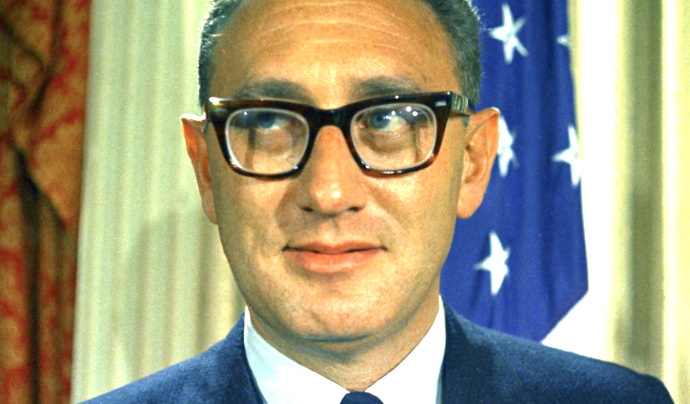Speaking at Davos, Kissinger backs Ukraine’s NATO bid and says the U.S. should intensify its military aid to Kyiv. pic.twitter.com/cMmzjNFBQw
— Sampieri Franco (@SampieriFranco2) January 17, 2023
Henry Kissinger was one of the only top level statesmen in the Western world standing in opposition to the war in the Ukraine, and calling for an immediate peace settlement.
It’s not really clear what it implies that he’s now reversed his position on NATO membership. Presumably he believes this is more likely to lead to peace.
RT:
The concept of Ukraine’s neutrality is “no longer meaningful” given the circumstances, Henry Kissinger told the World Economic Forum in Davos on Tuesday. He endorsed Kiev’s eventual membership of the US-led military bloc, but continued to insist on dialogue with Russia – a stance that earned him a spot on the notorious Ukrainian “kill list.”
Kissinger, now 99, was the US secretary of state (1973-1977) and national security advisor (1969-1975), playing a major role in the talks to end the Vietnam War, as well as the policy of pitting China against the Soviet Union during the Cold War.
At last year’s Davos gathering, in May, he advocated an urgent end to hostilities in Ukraine, lest Russia is “driven into a permanent alliance with China.” For daring to suggest that Moscow could keep Crimea – which rejoined Russia in 2014 – he was placed on the “Peacemaker” list of Ukraine’s enemies, however.
On Tuesday, he prefaced his remarks with “admiration” for Ukrainian leader Vladimir Zelensky and the “heroic conduct of the Ukrainian people,” before proposing essentially the same peace deal as last year.
“Before this war, I was opposed to the membership of Ukraine in NATO, because I feared it would start exactly the process that we have seen,” Kissinger said. “Now that this process has reached this level, the idea of a neutral Ukraine under these conditions is no longer meaningful.”
Kissinger is largely maligned unjustly. Despite being a Jew, he’s basically worked his whole life to ensure Western normalcy. He’s a good writer and he stood by Nixon.
Establishing relations with China is what he’ll be known for after his death, and that really didn’t work out very well.
Here’s the full interview.
